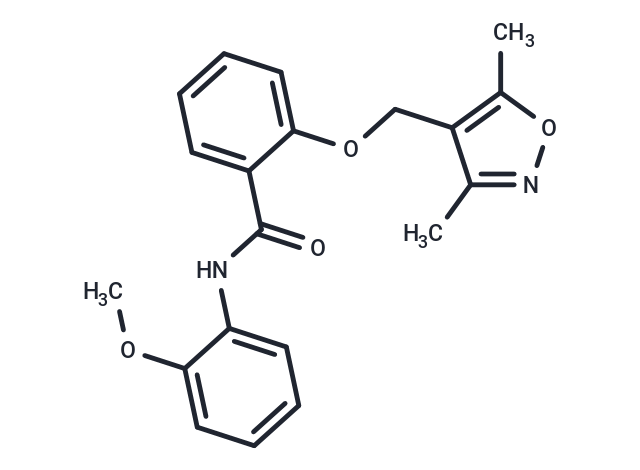Shopping Cart
- Remove All
 Your shopping cart is currently empty
Your shopping cart is currently empty

AKR1C3-IN-9, a selective Aldo-keto Reductase 1C3 (AKR1C3) inhibitor (IC50 = 8.92 nM), can significantly reverse Doxorubicin (DOX) resistance in a resistant breast cancer cell line.

| Pack Size | Price | Availability | Quantity |
|---|---|---|---|
| 5 mg | $38 | In Stock | |
| 10 mg | $58 | In Stock | |
| 25 mg | $118 | In Stock | |
| 50 mg | $197 | In Stock | |
| 100 mg | $323 | In Stock | |
| 200 mg | $466 | In Stock | |
| 1 mL x 10 mM (in DMSO) | $42 | In Stock |
| Description | AKR1C3-IN-9, a selective Aldo-keto Reductase 1C3 (AKR1C3) inhibitor (IC50 = 8.92 nM), can significantly reverse Doxorubicin (DOX) resistance in a resistant breast cancer cell line. |
| Targets&IC50 | AKR1C3:8.92 nM |
| In vitro | AKR1C3-IN-9 (compound 24) (10-100 μM; 72 h and 96 h) shows a weak antiproliferative effect on three breast cancer cell lines (MDA-MB-231, MCF-7) with an inhibition range of up to 100 μM. AKR1C3-IN-9 (10 μM, 25 μM, 50 μM; 72 hours) in conjunction with 10-50 μM DOX synergistically inhibits the proliferation of MCF-7 cells. AKR1C3-IN-9 (10 μM; 8 d) with 50 μM DOX synergistically inhibits the proliferation and clonal survival of MCF-7/DOX cell lines, reinstating sensitivity to DOX [1]. |
| Molecular Weight | 352.38 |
| Formula | C20H20N2O4 |
| Smiles | CC1=C(C(=NO1)C)COC2=CC=CC=C2C(=O)NC3=CC=CC=C3OC |
| Relative Density. | no data available |
| Storage | Shipping with blue ice. | |||||||||||||||||||||||||||||||||||
| Solubility Information | DMSO: 50 mg/mL (141.89 mM), Sonication is recommended. | |||||||||||||||||||||||||||||||||||
Solution Preparation Table | ||||||||||||||||||||||||||||||||||||
DMSO
| ||||||||||||||||||||||||||||||||||||

Copyright © 2015-2025 TargetMol Chemicals Inc. All Rights Reserved.